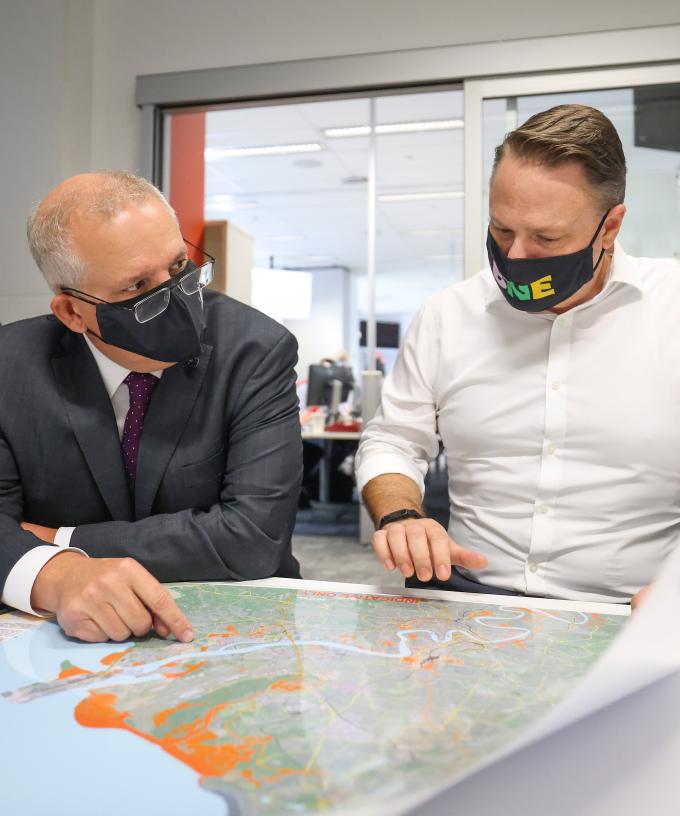Scott Morrison has promised to open the chequebook and cut red tape for business and welfare support following a backlash over the federal government’s approach to devastating flooding across Queensland and NSW.
On a trip to the flood-ravaged Lismore region of NSW on Wednesday, Mr Morrison said while he apologised that the “very high” expectations of support could not be met, the government was pulling out all stops.
“Every resource can be applied. But I can guarantee you whatever is supplied will still not measure up because of the sheer desperation of the situation,” he said.
“There can never be enough support in a natural disaster such as this.”
Barnaby Joyce echoed the prime minister’s sentiment hours later, apologising to residents if the help came too late.
“I know the people on the ground will be incredibly upset and very angry. They’d be frightened. They’d be very apprehensive about the future,” the deputy prime minister told the ABC.
“If people say it should’ve happened last week, well, if we made that mistake, we made that mistake, and we’re sorry for it.”
The prime minister used the trip to announce he would ask Governor-General David Hurley on Friday to approve the declaration of a national emergency – the first such declaration of its kind – and that the government would use its emergency response fund to support mitigation works.
The national emergency declaration – which will also require the green light from the NSW and Queensland premiers – will allow the federal government to access a range of stockpiled resources, cut red tape for business and enable such things as allowing affected people to access payments, benefits or services without the need for ID documents or witnessed signatures.
Mr Morrison defended the timing of the declaration, more than a week after Lismore’s worst-ever floods began, saying the government has followed the required process for such a declaration.
He unveiled a raft of new spending on disaster payments, mental health and legal support and help for business as he toured the area.
Residents in Lismore and surrounding areas have criticised the government’s handling of the crisis, calling the response too slow to help deal with the clean-up efforts.
Labor’s emergency management spokesman Murray Watt, who was in Lismore, said too many people had been left to fend for themselves when the flooding hit.
“Every single person I speak to … they’re all saying the same thing: ‘Where is the government? Where is the army? Where are the federal government resources to help the community while it’s getting his hands dirty to get this clean-up done?'” he said.
There are 1800 ADF personnel on the ground in northern NSW assisting flood recovery efforts, with that number set to grow to 2500 by the end of the day.
Mr Morrison said the once-in-500-year flood event had “taken everybody including the community by surprise”.
“The resources move and they come as you see them now but they are not available on a moment’s notice,” he said.
Mr Morrison and his entourage visited a flood-affected farm where he met with Paul Weir who had about 150 cows swept away in floodwaters.
Mr Weir told AAP the politicians were “compassionate” and listened to his concerns around insurance.
“I need surety that in the rebuilding process that I can …get flood insurance and can afford flood insurance and if we can’t get that we won’t rebuild, and I made that very clear.”
Under the new support package, two extra weekly payments of $1000 per adult and $400 per child will be made to residents in the catastrophe zones of Lismore, Richmond Valley and Clarence Valley local councils.
AAP







